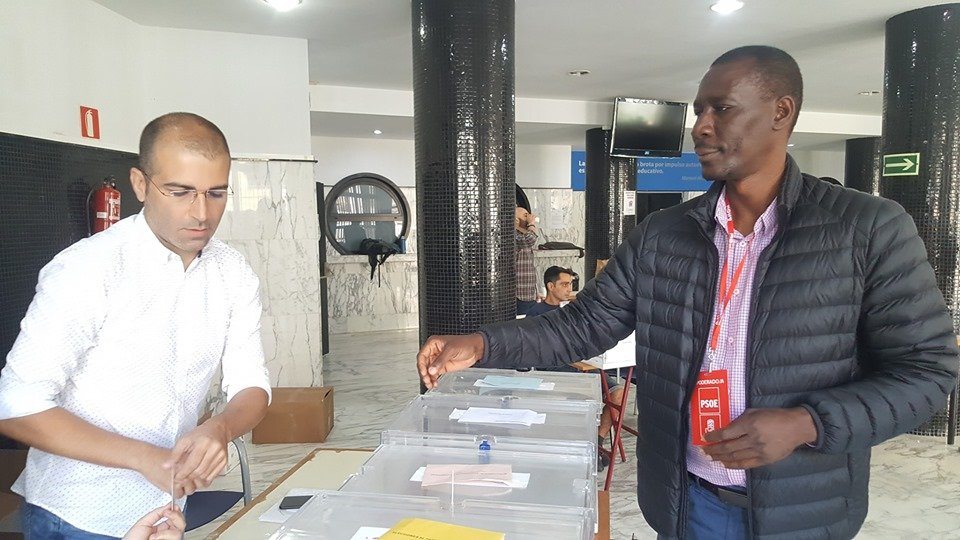In Spain, Equitorial Guinea born Rita Bosaho made history in 2015 when she became the first black person to be elected to the country’s parliament. Following her footsteps is 53-year-old Luc André Diouf who recently got elected into congress officially becoming the second the black person to gain such a position.
Minority representation in politics in Europe has seen an impressive rise over the past few years. With illegal immigration particularly from Africa to Europe being a very sensitive issue as a result of the massive flow of African migrants attempting to cross over, news of officials of African descent gaining political positions are usually well-received especially by their fellow African migrants who are uncertain about their fate.
In 2013, Congolese born Cécile Kyenge became Italy’s first black cabinet minister under Prime Minister Enrico Letta’s short-lived government. She is currently a member of the European Parliament. Last year in Sweden, Leila Ali Elmi made history when she became the first Somali and East African woman to be voted into the Riksdag, as the Swedish parliament is known. In Belgium, Sarah Mohamed Khalif also became the first ever Somali woman to take political office in the country.

Born in Senegal, Diouf entered Spain in 1992 on a tourist visa, according to Spanish news outlet El Pais. He, however, overstayed and became an irregular immigrant eventually becoming homeless for over a month. With no money, he slept at Las Canteras in Las Palmas, Gran Canaria.
“I believe in this diverse and pluralistic Spain that is reflected in the fact I am among the 123 Socialist deputies,” Diouf, who is a deputy for the Socialist Party (PSOE) in Las Palmas, Gran Canaria, told El Pais, adding that he’ll serve in the best interests of migrants – be it first or second generation who look up to him.
Currently head of the PSOE’s refugee policy, Diouf also spoke about the ascendancy of far-right group Vox, a notorious anti-immigrant party. Vox won 24 seats in Congress in April’s elections.
“It’s sad,” he said. “In other European countries where there is much more immigration, such as France or Italy, [other forces] neither accept nor embrace the extreme right. Spain has always been welcoming and it has been and still is a country of emigrants.”

Having experienced the harsh realities as an irregular immigrant, Diouf told El Pais he will use his position to help streamline migration in an effort to prevent unnecessary deaths and issues at the borders of Ceuta and Melilla, Spain’s two territories in North Africa.
He also added the European Union can do better about the migration crisis at the southern border in Europe.
“It doesn’t make sense that the responsibility falls to Greece, Italy and Spain,” he said. “The EU has to become more involved so that immigration stops being a problem. Xenophobic political parties feed off immigration. Any xenophobic, racist, homophobic or anti-feminist act should be reported.”
Diouf worked as an immigration secretary in the Canary Islands for the Workers Commissions union (CCOO) before delving into politics.










